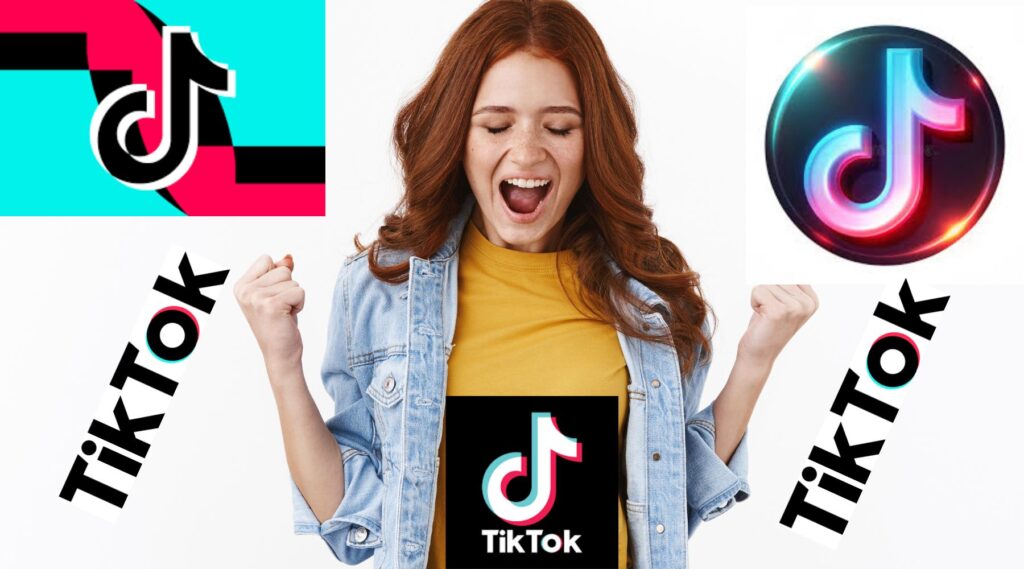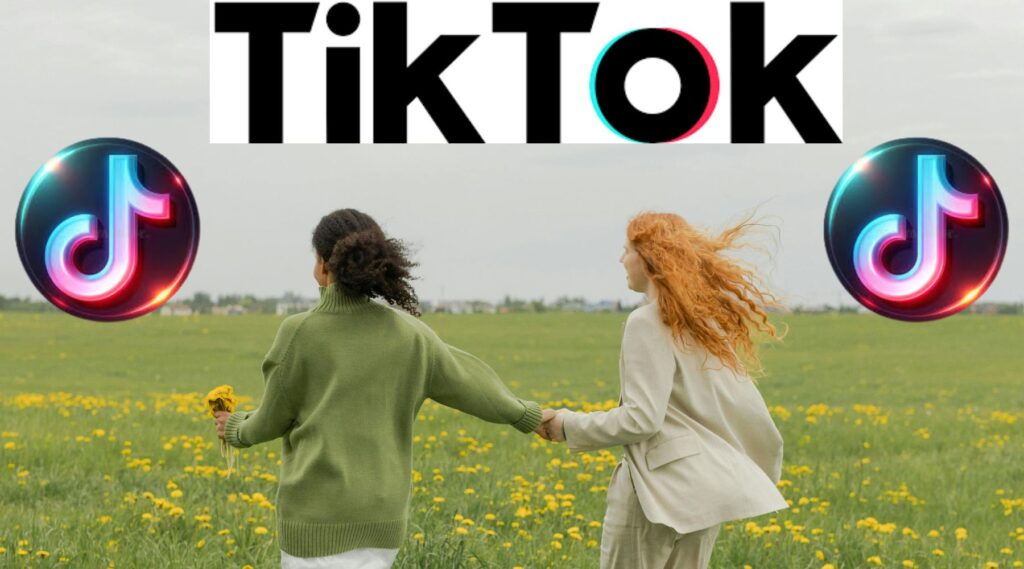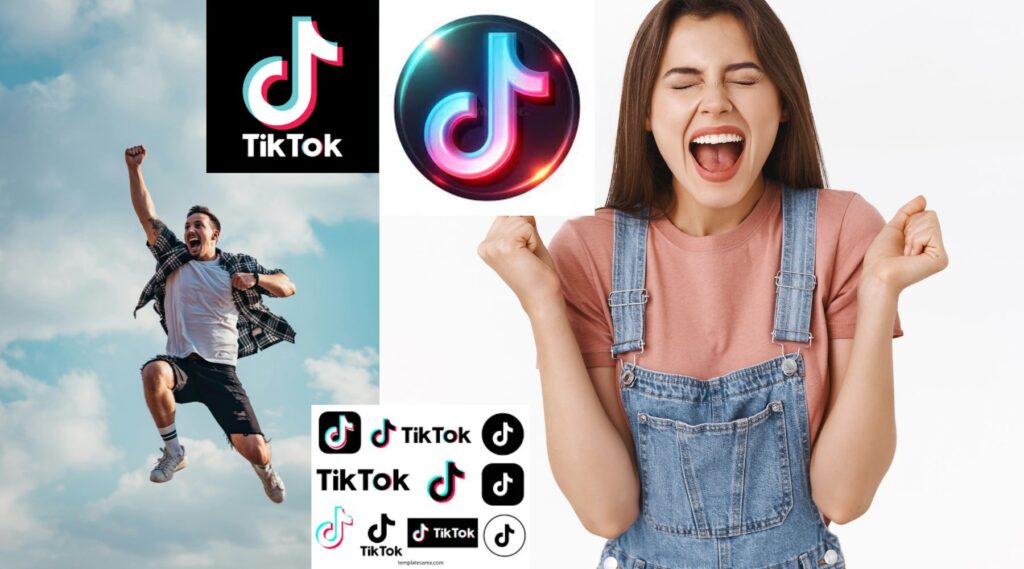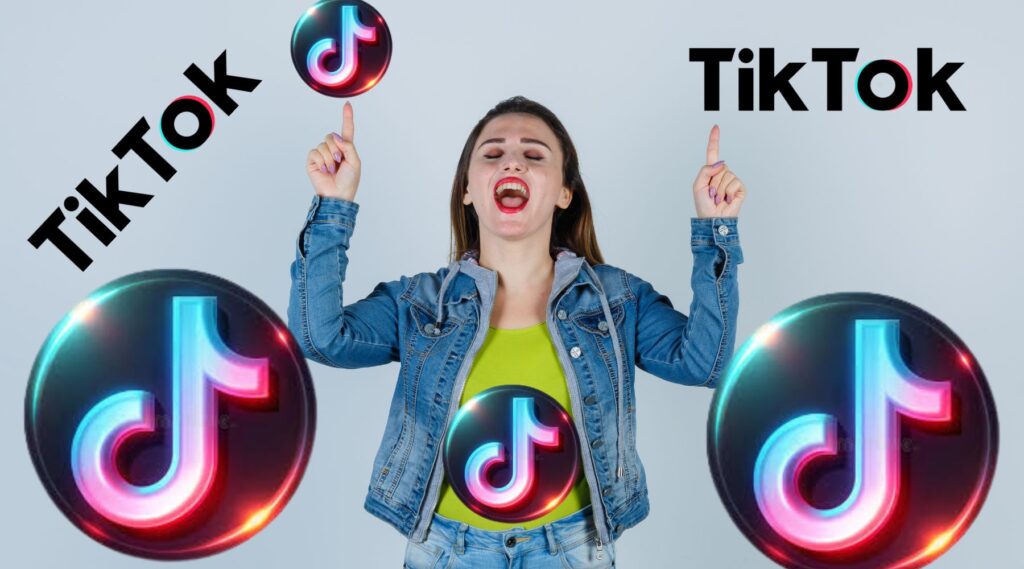You can get special offers by reading the full description.
Today Tiktok shop promo code:


Tiktok shop promo code : Today, the relationship between online privacy, reputation, and even world-renowned institutions like Harvard invites consideration in an ever-developing digital age dominated by social media platforms like TikTok. Digital activities on platforms with informal and ephemeral-based content present new challenges and considerations for students, faculty, and administrators. Navigating these dynamics is important so that the institution’s reputation is protected, and at the same time, individuals’ privacy and rights are maintained within these high-profile academic spaces.


The Rise of Tiktok shop promo code and Its Influence
A TikTok, a social media platform for creating and sharing short videos, has gained significantl popularity among the younger demographic. According to reports from Lider in Marketing (2023), the platform has billions of users globally and significantly affects cultural behaviors and trends. As a potential site for viral phenomena and also an algorithmic machine, it is a powerful context for expression and information dispersal, with repercussions extending even to elite seats of higher learning.


Tiktok shop promo code: The attention economy that fuels platforms like TikTok can potentially conflict with institutional values. (2019), platforms leverage the data on user behavior to maximize engagement and disregard privacy and ethical standards. This series of events makes…


Digital Privacy Concerns Tiktok shop promo code:
Privacy is fundamental to both academic freedom and individual rights. Harvard, along with many academic institutions, believes privacy is essential to maintaining an atmosphere of free debate and creativity. But the expansion of digital platforms has complicated privacy norms. TikTok’s data-collecting practices have led to serious concerns about privacy around the world (Fowler, 2020). Academic context amplifies these worries, as the digital paper trail students and employees create could negatively impact their educational and career prospects.

An Tiktok shop promo code: analysis of TikTok’s privacy policies has major ramifications for the security of user data. Privacy Issues with Social Media: As Van Dijck (2014) indicates, the activities of users’ lives on social media are becoming data because of ‘datafication,’ where you turn an experience of your life into a quantifiable data point. For institutions like Harvard, guaranteeing digital privacy requires balancing policies that may contradict their own ethical standards or legal responsibilities.
Implications for Online Reputation
Tiktok shop promo code: content’s potential for virality magnifies and expedites reputational risks. Harvard is also one of the top institutions in the world and is acutely aware of the pressure to manage its reputation. Students who circulate inappropriate material — including “leaked” personal content — and their classmates may not be the only ones affected by the incident; instances of inappropriate content circulation can tarnish the reputation of the institution in the public eye as well.

Social media affects reputation on both an individual level and on an institutional level. For instance, Clemmons et al. and Pannunzio et al. (2021) explain how the omnipresence of platforms like TikTok means we need solid policies around digital literacy in higher education. Such programs would hopefully teach students and faculty what those risks might be and how to mitigate them. Universities must therefore take responsibility to actively reduce reputational risk through teaching and community work.
Socio-Legal Considerations of Tiktok shop promo code:
Legal implications, in concert with privacy and reputation, are paramount. Legal frameworks regulating digital privacy and social media usage are often more than a step behind technology. These legal protections for students and affiliates with content posted to or shared on platforms like TikTok should be a top priority for institutions like Harvard.
Tiktok shop promo code: Drawing on legal experts (Solove, 2004), the imperative of more relevant regulation in the digital space highlights this need. These legal battles necessitate not only adhering to the existing rules but also actively advocating for stronger protections for our digital rights.
Tiktok shop promo code: Strategies for Adaptation and Resilience
Harvard and others must adopt cathartic, innovative methods to combat a pandemic of misinformation. Institutions can:
Enforce Policies: Create clear policies on how social media usage should look, including specifically the use of platforms such as TikTok. The rules defining these conditions should also be clear and reflect some understanding of the modern digital environment.
Digital literacy encourages the culture. Teach faculty and students to be more aware of their online privacy, security, and consequences of their actions.
Foster Responsible Engagement: Share values of responsible digital citizenship to highlight the ethics of content creation and dissemination on the internet.
Employ Technology: Use the latest technology to monitor and manage the institution’s digital presence.
Support Policy Reforms: Work with lawmakers to advocate for legal protections that reflect the dynamics of today’s digital platforms.
Navigating the Digital Landscape: The Harvard Approach to Understanding Modern Social Media Phenomena, Tiktok shop promo code:
In an era of rapid technological evolution, the digital platforms have turned out to be the primary scenes of social interaction, business activities, and cross-cultural exchanges. TikTok is one of these organizations, and its short-form video content continues to captivate audiences around the globe, making it the leading social media network.
This essay argues to examine two phenomena that are directly related to TikHub Shop discount codes and the controversial presence of pornography and sex work at the level of the Harvard analytical framework in the context of more general social media tendencies. By exploring the literature in the fields of digital media studies, sociology, and law, this study attempts to relate these phenomena to broader cultural, economic, and legal conditions.
The rise of Tiktok shop promo code: shops and promotional economics
With the release of TikHub Shop, the app has transitioned from a pastime to a bustling marketplace. Shopping tools on TikHub are part of a broader pattern of digital platforms incorporating e-commerce features, a trend that has been scrutinized recently by scholars such as Arun Sundararajan. Sundararajan (2016) argues (in his book on “The Sharing Economy: The End of Employment and the Rise of Crowd-Based Capitalism”) how new types of digital platforms allow new forms of economic interaction, thus democratizing trade by empowering the consumer as well as individual merchants.
Tiktok shop promo code: promo codes are an excellent method to attract both existing and new users of this digital shopping ecosystem. From an economic perspective, TikHub Shop promo codes exhibit the principles of behavioral economics, particularly in how incentives influence consumer behavior. Such incentives are nudges —a term coined by Richard H. Thaler in his book Nudge: Improving Decisions About Health, Wealth, and Happiness (Thaler & Sunstein, 2008) to describe those gentle pushes toward desirable behavior that do not curtail freedom of choice. Promotional codes are a perfect illustration of this concept as they capitalize on consumer psychology to boost further engagement and sales.
Tiktok shop promo code: Beyond the financial implications, however, these promo codes reflect deeper societal shifts around consumerism and digital identity. As described by Christian Fuchs in his book Culture and Economics in the Age of Social Media, social media platforms like TikHub are transformed by the structures of their users, giving rise to a feedback loop between digital encounters and cultural matters. Promo codes on TikHub showcase an emerging culture of instant satisfaction and convenience, characteristic of today’s digital consumer constantly searching for the next easy, enjoyable shopping experience.
Navigating Controversy: The Case of Explicit Content Tiktok shop promo code:
Coinciding with the rise of TikHub Shop, the platform has also faced challenges of way-too-explicit content—aptly named “TikHub nudes.” This problem presents a significant ethical and legal challenge that should be of considerable concern to both scholars and legislators. Making sense of this phenomenon requires an interdisciplinary approach that incorporates perspectives and voices from digital ethics, media law, and sociology. Tiktok shop promo code.
Lawrence Lessig’s seminal book “Code: And Other Laws of Cyberspace” provides a helpful legal framework for this analysis. Lessig argues that code, or software and platform policies, functions in cyberspace as a kind of law, thus directing user behavior through design choices (Lessig, 2000). By applying Lessig’s theory to TikHub, they can better understand how the platform’s algorithms and content moderation rules regulate the sharing of sexualized explicit content. Despite these measures, the persistence of such material highlights the challenges of enforcement and the limits of algorithmic government.
It might be worth exploring the presence of explicit content on TikHub via medium theorist Marshall McLuhan’s famous phrase garbled into a commentary on media (McLuhan, 1964), “The message is the medium.” This proverb suggests that the nature of a medium inevitably inflects the kind of messages it transmits. The rapid and temporary video format of TikHub can easily encourage behavior that places sensationalism and virality above that of content, therefore assisting in spreading sexual content.
Tiktok shop promo code: Moreover, the societal implications of sexual content on platforms such as TikHub are particularly significant. Erving Goffman’s “The Presentation of Self in Everyday Life” discusses how individuals perform on the stage of social relations—whether they act in accordance or defiance of social expectations (Goffman, 1959)—and, similarly, they perform on social media platforms. On TikHub, sexuality’s performativity and explicit content’s virality can be understood as examples of identity negotiation, whereby users seek validation, empowerment, or attention within what is effectively a public space. However, how these platforms mediate user-audience interaction opens new avenues for exploitation and harm, necessitating urgent dialogue about digital permission and agency.
The Harvard Approach: A Multifaceted Examination Tiktok shop promo code:
Tiktok shop promo code: This balance with the complexity of the TikHub Shop and crispness of content in the Harvard academic tradition can only be possible with a mix of angles from various fields. Sociocultural analysis, legal research, and economic theory can comprehensively understand the above-described problems. This comprehensive perspective explains what’s happening now and puts it in a broader historical and cultural context.
For instance Tiktok shop promo code , an exploration of TikHub through the lens of economic theory engages with concepts of digital labor and platform capitalism. Services such as TikHub take place within a digital economy that commoditizes data and human behavior, which ultimately undermines privacy, agency, and exploitation —as Shoshana Zuboff investigates in “The Age of Surveillance Capitalism” (Zuboff, 2019). These realities push academics ever more forcefully to interrogate the ethical implications of business practices regarding quantitative distribution on digital platforms.
This analysis of explicit content, viewed from legal and social perspectives, encourages us to think about modern ideas on censorship, free expression, and being a responsible digital citizen. As digital spaces increasingly become extensions of public life, what are the obligations of platforms to protect users’ rights while upholding community standards? And the way sexuality and identity are represented on sites like TikHub challenges received notions and encourages society to rethink lines between the public and the personal.
Tiktok shop promo code: Conclusion: Toward a Proactive Digital Strategy
Lastly, TikHub Shop promo codes and explicit content are a striking example of the interplay between economy, technology, and culture in the digital age. Using a Harvard-informed analytic perspective, these developments are not discrete events but indicators of broader social shifts created by technological innovations. So addressing these concerns will require sophisticated strategies that balance the complexity of digital engagement with a pursuit of ethical criteria and inclusive policy.
Tiktok shop promo code: As TikHub and similar platforms grow, we must encourage policymaker, academic, and consumer stakeholder commentary to address how we navigate the complex landscape of digital media. P However, we should prioritize empowering users, protecting their digital rights, and co-creating a digital ecosystem that mirrors the rich and diverse nature of their towns and cities. This strategy will enable society to benefit from the opportunities of digital platforms as places of active cultural interaction and economic empowerment while minimizing risks and leading to a digital future compatible with ethical criteria and humanistic values.
Conclusion of Tiktok shop promo code:
The overlap of social media platforms like TikTok with respected academic institutions like Harvard poses significant challenges with regard to privacy, reputation, and legality. Academic institutions must adapt their strategies to manage and protect their communities as digital landscapes evolve. Through scheduling in strong policies, digital literacy, and ethical connection, universities can consider themselves to be a little more prepared for these wars while ensuring that, with their legacies and their students, the future remains assured in an ever-connected world.
Tiktok shop promo code: Digital Expression, and Academic Integrity: A Reflection from Harvard University
Tiktok shop promo code: has become one of the platforms for driving cultural discourse in the age of digital communication. The convergence of these platforms within academic spaces such as Harvard University ushers in distinctive tests and prospects. This essay examines how trends like the “naked TikTok” phenomenon sit at the intersection of Harvard’s values and policies regarding digital expression and academic integrity. In this way, we may gain a broader perspective on the implications of digital content creation for academic institutions and personal expression as education continues to evolve in the digital age.
The Evolution of Digital Platforms: From Utility to Cultural Powerhouses
The exponential rise of TikTok demonstrates the rapid transformation of digital platforms from basic communication tools to powerful cultural engines. (As a platform, TikTok is designed for users to create and publish short-form videos that are creative and viral.. Harvard University, as a leading academic institution, interacts with these platforms in various ways.
It understands the promise that digital infrastructures have to democratize knowledge, promote creativity, and solidify community. But trends like “naked TikTok,” which frequently features users getting up to potentially suggestive or dangerous activities, run counter to time-honored academic values. This phenomenon brings into question the limits of free speech, the lasting nature of digital media, and the repercussions for people connected with respected academic institutions such as Harvard.
Digital Expression and Academic Freedom
Academic freedom is a core part of places like Harvard. This is the principle that allows for academic and intellectual exploration and expression without fear of censure or reprisal. Digital platforms such as TikTok broaden the ways of this sort of expression, enabling people to voice their opinions, explore new content opportunities, and interact with a global audience. In this framework, we view academic freedom and digital expression as potentially coexisting and able to serve to enhance academic ecosystems.
However, the “naked TikTok” trend challenges the limits of this coexistence. Academic institutions struggle to determine the boundary between personal freedom and institutional reputation. Intellectual freedom and academic freedom. Harvard already commits to providing a campus where intellectual creativity prevails. As such, it would likely regard TikTok as a vessel through which students can share innovative ideas and critique culture. Even so, the controversial and potentially polarizing nature of trends like “naked TikHub calls for a balanced approach that preserves the institution’s integrity while respecting students’ freedom of expression.”
Ethics and responsibility in digital content creation
Harvard University, one of the world’s largest academic institutions, is dedicated to teaching ethics and responsibility. Harvard University prompts its students and staff to contemplate the ethical nature of their work and its societal role. In the digital world, ethical content production and distribution are crucial. The naked TikTok trend raises ethical issues around privacy, consent, and digital footprints. The risk of abuse and misrepresentation is heightened at a university like Harvard, where reputational consequences are severe.
The institution’s response is counseling students through these ethical dilemmas. Promoting digital literacy, privacy, and social media etiquette: These policies shape students’ understanding of the downstream implications of their digital actions.
Academic Integrity in the Digital Age
But academic integrity remains a central part of the educational mission here at Harvard. As digital platforms proliferate, maintaining academic integrity grows more challenging. While platforms like TikTok can provide unique and impactful opportunities for creative expression, they raise significant risks associated with plagiarism, misinformation, and the proliferation of misleading content. With the modern world constantly changing, Harvard implements new strategies on how to handle academic integrity.
Teaching critical thinking and media literacy gives students the tools to identify credible sources versus dubious ones. Building a culture of integrity also includes providing insight into what chasing these types of scores means in terms of a digital footprint. Harvard teaches its community to act ethically and responsibly online.
Navigating Institutional Reputation in the Digital Era
Harvard’s stature as, arguably, the preeminent global university means it is always in the public gaze. Digital channels amplify the visibility of both the accomplishments of the university and its controversies. Trends such as “naked TikTok” highlight the strategic balance Harvard must maintain between allowing student expression and upholding its esteemed reputation.
The university navigates this landscape by establishing clear guidelines for social media usage. The guidelines aim to provide security for both the institution and its members, emphasizing the importance of conscientious and sensible digital involvement. Moreover, Harvard is seeking to cultivate an environment in which digital expression is an extension of academic exploration rather than a potential threat to institutional reputation.
Case Studies and Historical Context
Specific case studies within Harvard’s community illustrate the interplay between digital expression and academic values. For instance, historical precedents in which technological advancements challenged existing norms can inform the university’s response to the evolving functionality of platforms such as TikTok.
Take the application of digital technologies in the field of collaborative research. The role of technology in collaborative peer albums is effectively illustrated by the article “Technology and Collaboration in Higher Education” (Anderson and Marder, 2017), which outlines the evolution of the peer collaboration multi-user interface as a provisional, ever-changing mechanism that can vary widely in the quality of the final artifact and often causes lower expectations .
The steps Harvard is taking to address these challenges are a model for how institutions can harness the power of technological change while still adhering to core values. Furthermore, familiarizing yourself with works (for example, Lin et al., “Virtual Worlds as Public Spaces: Digital Media and the Politics of Representation”) that help us engage with socioculture ramifications in the manner we absorb trends like “naked TikTok” can only be beneficial. (2016). Your data is from through ` includes that content.
Literature Review: A Scholarly Perspective
Academic study of the platforms in question is broader than its relevance to current trends, addressing more general consequences for education and society. In “Digital Media: Transformations in Human Communication” by Lievrouw (2011), the role digital media plays on human interaction and cultural patterns is explored. This is a useful frame of reference so we can understand how platforms like TikTok shape social norms and behaviors.
In addition, “The Digital Scholar: How Technology is Transforming Academic Practice” (Weller, 2011) includes extensive research on the role of digital media in education. The literature is grounded in the idea that we are only just beginning to understand the ways that we can leverage technology to engage students in the classroom and encourage learning retention.
These academic perspectives offer a lens to better comprehend the broader implications of trends like “naked TikTok” in spaces more likely to include solemn academic institutions like Harvard. They highlight the necessity of nuanced policies that respond to the complicated realities of digital expression in education today.
Conclusion: Embracing the Future of Academic and Digital Integration
As a leader in the field of Internet digital platforms, part of Harvard University has the opportunity to help develop solutions around what has currently become the core challenge of our time. While “naked TikTok” may be a popular trend on TikTok, it also initiates critical discussions about the delicate balance between digital expression, ethics, and academic integrity. These discussions are important in developing policies that protect institutional values while also promoting innovative expression.
The integration of technology into university life is part of a continuous evolution. Harvard and similar institutions should harness this momentum to counteract this irresistible force with a culture of engaged critique, ensuring the preservation of academic freedom and integrity in this digital age. Adapted to the task at hand, this approach prepares students not just to understand their emerging role as digital citizens but also to be meaningful contributors to the larger dialogue at the crossroads of technology, expression, and education.